Direct Russia-Ukraine Peace Talks Fail to Secure a Cease-Fire

Direct Russia-Ukraine Peace Talks Fail to Secure a Cease-Fire
With both sides unwilling to concede, Kyiv is calling for more Western pressure on Moscow.
Delegations from the United States, led by U.S. Secretary of State Marco Rubio (fourth from left); delegations from Turkey, led by Turkish Foreign Minister Hakan Fidan (center); delegations from Ukraine, led by Ukrainian Foreign Minister Andrii Sybiha (fourth from right); and Ukrainian Defense Minister Rustem Umerov (second from right) attend a meeting in Istanbul on May 16. Francisco Seco/AFP via Getty Images
Welcome back to World Brief, where we’re looking at the outcome of direct Russia-Ukraine peace talks, Israeli airstrikes across Gaza, and the United States preparing to set new tariff rates for many of its trade partners.
Little Dialogue, No Progress
Russia-Ukraine peace talks ended in Istanbul on Friday after less than two hours of direct negotiations. Although a cease-fire deal was not secured, experts suggest that the meeting’s very existence marked a tactical win for Moscow, which managed to start the dialogue without having to first agree to a truce—something that Ukraine and its allies have long sought as a precondition for talks.
Welcome back to World Brief, where we’re looking at the outcome of direct Russia-Ukraine peace talks, Israeli airstrikes across Gaza, and the United States preparing to set new tariff rates for many of its trade partners.
Little Dialogue, No Progress
Russia-Ukraine peace talks ended in Istanbul on Friday after less than two hours of direct negotiations. Although a cease-fire deal was not secured, experts suggest that the meeting’s very existence marked a tactical win for Moscow, which managed to start the dialogue without having to first agree to a truce—something that Ukraine and its allies have long sought as a precondition for talks.
Russian President Vladimir Putin proposed the negotiations earlier this week, only for Ukrainian President Volodymyr Zelensky to up the ante by proposing that the two leaders meet face-to-face in Istanbul on Thursday. At the eleventh hour, though, Putin announced that he would not show—leaving Zelensky to fly to Turkey alone for a meeting with Turkish President Recep Tayyip Erdogan in Ankara before traveling to Albania on Friday for a summit of the European Political Community.
In their places, Putin sent a mid-level delegation led by past negotiator Vladimir Medinsky, and Zelensky sent a high-level team led by Foreign Minister Andrii Sybiha. U.S. Secretary of State Marco Rubio as well as envoys Steve Witkoff and Keith Kellogg also participated, though U.S. President Donald Trump chose not to attend.
The members of the Russian delegation did “everything they could to turn the Istanbul meeting into a staged, empty process,” Zelensky wrote on X on Friday, going so far as to accuse Putin of being “afraid” to meet with him in person. Medinsky, meanwhile, said the Kremlin was willing to negotiate in the future and that he would deliver Ukraine’s request for a direct meeting between Putin and Zelensky, though he did not commit to arranging it.
Friday’s talks were the first direct negotiations between Moscow and Kyiv since March 2022, one month after Russia launched its full-scale invasion of Ukraine. The two countries agreed to exchange 1,000 prisoners of war each in what would be the largest such trade since the conflict began. However, that was where progress ended.
Kyiv wants an immediate and unconditional truce before substantive peace negotiations get underway. However, Moscow worries that such a pause would allow Ukraine to mobilize its forces and acquire more Western-made weapons. The Kremlin has demanded that Kyiv cede five Ukrainian regions that are fully or partly occupied by Russia, including Crimea; abandon its NATO membership ambitions; and allow Moscow to restrict the size of Ukraine’s military.
Russia’s demands on Friday were “detached from reality and go far beyond anything that was previously discussed,” a source in the Ukrainian delegation told Reuters. These included ultimatums that would force Kyiv to give up parts of its territory as well as “other non-starters and non-constructive conditions.”
Following the talks, Zelensky spoke with Trump as well as the leaders of France, Germany, Poland, and the United Kingdom to push for increased Western pressure on Russia. This included demands for new sanctions on Moscow’s energy and banking sectors until Putin is ready to engage in what Zelensky called serious diplomacy.
Today’s Most Read
- Why Khamenei Is Betting on Trump by Alex Vatanka
- Trump Isn’t Following the Script on Israel by Emma Ashford
- Elon Musk Was Donald Trump’s Useful Idiot by Gideon Lichfield
What We’re Following
Deadly Gaza offensive. Israeli airstrikes killed more than 108 people and injured hundreds more across Gaza on Friday. According to an Israeli official, the country’s strikes were preparatory actions for a larger military campaign that Israeli Prime Minister Benjamin Netanyahu has vowed to pursue until Hamas is defeated.
The official also said the attacks were intended to send Hamas a message that such an offensive would begin soon if the militant group does not release the remaining 58 hostages held in Gaza; of those, Israel believes that as many as 23 are still alive. On Monday, Hamas freed an Israeli American captive in what it called part of “the steps being taken to achieve a ceasefire” and a gesture of goodwill ahead of Trump’s tour of the Middle East.
This week alone, Israel’s aerial bombardments have killed nearly 300 Palestinians, according to local authorities. Some experts had hoped that Trump’s regional trip would reignite truce talks and convince Israel to allow humanitarian aid to enter Gaza; Israel has imposed a blockade on all aid to the territory for more than two months. However, such optimism may be dwindling, as Israel’s campaign appears nowhere close to finished.
On Friday, Trump acknowledged that “a lot of people are starving” in Gaza and said his administration was “going to get that taken care of.” He did not offer specifics on how that would happen, but it could potentially involve a foundation that was recently created with Trump administration backing to establish a new system for getting aid into Gaza.
New tariffs incoming. The United States will soon begin to unilaterally inform many of its trading partners of new tariff rates, Trump said on Friday. It is “not possible to meet the number of people that want to see us,” Trump said during the final leg of his Middle East tour in the United Arab Emirates on Friday; the U.S. president claimed that around 150 countries were seeking new deals following the start of a 90-day pause last month on most of his so-called reciprocal tariffs.
Foreign powers should expect to receive letters from U.S. Treasury Secretary Scott Bessent and Commerce Secretary Howard Lutnick over “the next two to three weeks” informing them of “what they will be paying to do business in the United States,” Trump said. It is unclear which countries will receive these letters as well as which of those nations will be given the chance to negotiate the terms.
Lutnick has made clear that the 10 percent global baseline tariff will remain.
Friday’s announcement contradicts past U.S. promises that the White House would secure new trade deals with individual countries, as it has done with the United Kingdom. At the same time, Trump added on Friday that his team had made progress in reaching a trade agreement with China; the two superpowers rolled back their respective tariffs by 115 percentage points on Wednesday for a 90-day period.
Far-right election stakes. Millions of Romanians are preparing to vote on Sunday for the final round of the country’s presidential election rerun. Experts are viewing the high-stakes runoff as a litmus test for Europe’s future, with far-right candidate George Simion the current front-runner against pro-Western Bucharest Mayor Nicusor Dan. Romania’s top court voided the results of the presidential election last December after evidence emerged that Russian interference helped pro-Kremlin candidate Calin Georgescu win; Moscow denies these allegations.
Hard-right platforms have soared in popularity across Europe in recent months. From Italy to Germany, nationalist groups have garnered increasing support, even amid efforts to stonewall extremist parties from ruling coalitions.
Polish Prime Minister Donald Tusk is hoping to prevent such an outcome on Sunday, when Poland also holds a presidential election. The latest polls are predicting that centrist Warsaw Mayor Rafal Trzaskowski will win this weekend’s first round. A Trzaskowski victory would solidify Tusk’s control of government; throughout his tenure, the prime minister’s domestic reform agenda has been hampered by incumbent President Andrzej Duda and his nationalist opposition Law and Justice party.
Also on Sunday, Portugal will hold early parliamentary elections—its third in a little more than three years. Prime Minister Luís Montenegro’s center-right Democratic Alliance is expected to secure the most votes but fall short of a majority. Montenegro failed to win a confidence vote in March that he himself proposed due to alleged ethical concerns surrounding his family’s data protection consultancy; Montenegro denies any wrongdoing.
What in the World?
Former Uruguayan President José Mujica died on Tuesday. How old was he?
A. 64
B. 73
C. 89
D. 93
Odds and Ends
Slovenian police announced on Friday that a statue of U.S. first lady Melania Trump was stolen from her hometown of Sevnica on Tuesday. The life-size sculpture, unveiled in 2020 during Trump’s first term, had already replaced a wooden statute of Melania that was set on fire earlier that year. Police are still searching for who sawed off its bronze replacement.
And the Answer Is…
C. 89
A farmer and former guerrilla fighter, Mujica went on to become one of the most transformative national leaders in South America, Guillermo Draper writes in FP’s obituary.
To take the rest of FP’s weekly international news quiz, click here, or sign up to be alerted when a new one is published.
Alexandra Sharp is the World Brief writer at Foreign Policy. Bluesky: @alexandrassharp.bsky.social X: @AlexandraSSharp
More from Foreign Policy
-

Indian Air Force personnel stand in front of a Rafale fighter jet during a military aviation exhibition at the Yelahanka Air Force Station in Bengaluru. A Tale of Four Fighter Jets
The aircraft India and Pakistan use to strike each other tell a story of key geopolitical shifts.
-

A cardinal in a black robe with red sash with hands folded in front of him walks past a stage and steps. Conclave Sends Message With American Pope
Some cardinals had been agitating for U.S. leadership to counter Trump.
-

An illustration shows red tape lines crossing over and entrapping a semiconductor chip. Is It Too Late to Slow China’s AI Development?
The U.S. has been trying to keep its technological lead through export restrictions, but China is closing the gap.
-

A man watches a news program about Chinese military drills surrounding Taiwan, on a giant screen outside a shopping mall in Beijing on Oct. 14, 2024. The Pentagon Fixates on War Over Taiwan
While U.S. military leaders fret about China, Trump has dismissed the Asia-Pacific.

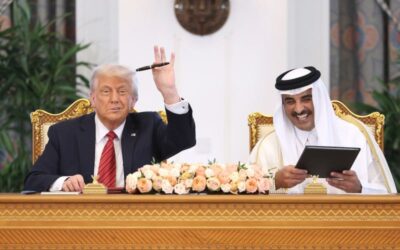
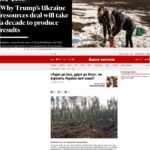

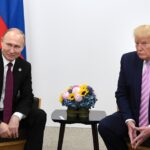

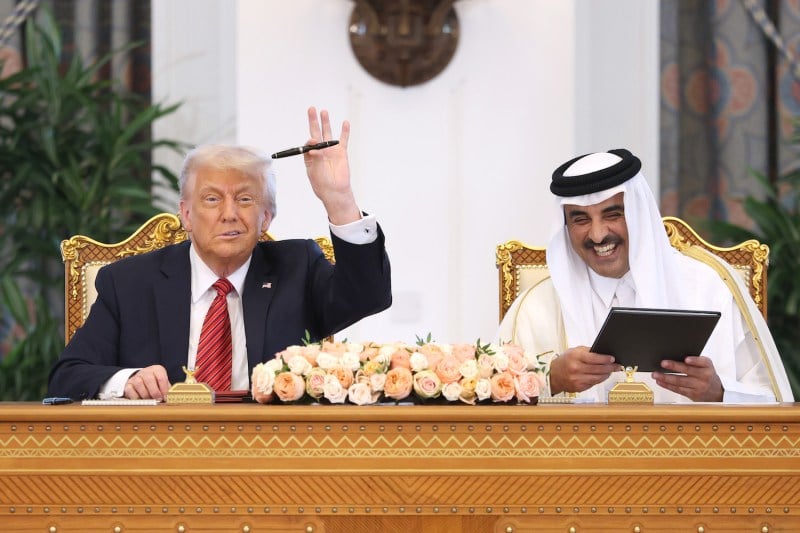
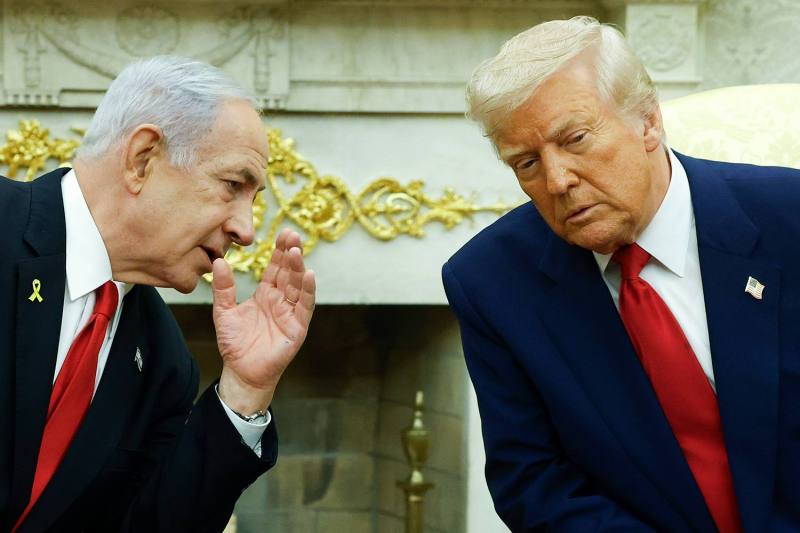
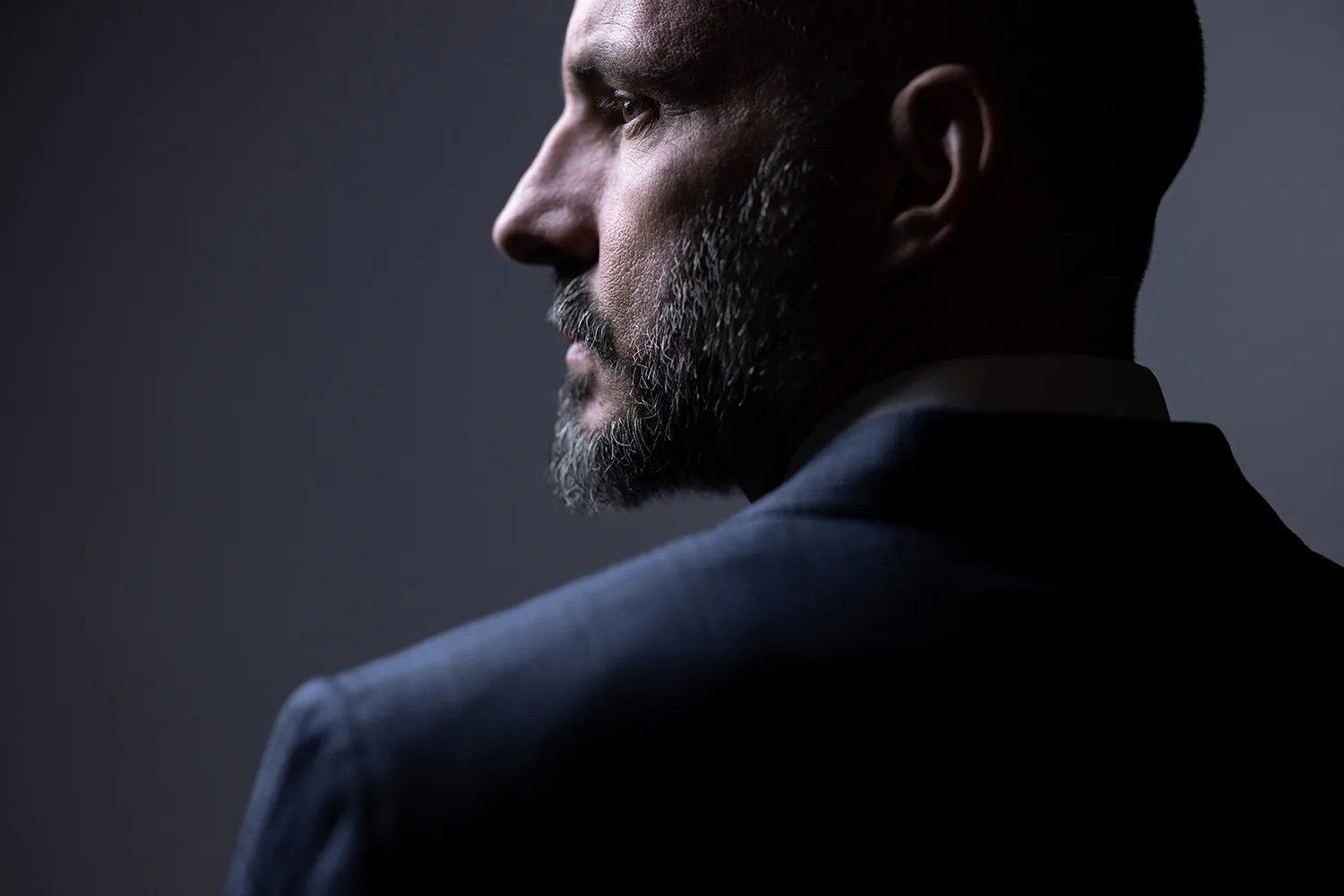
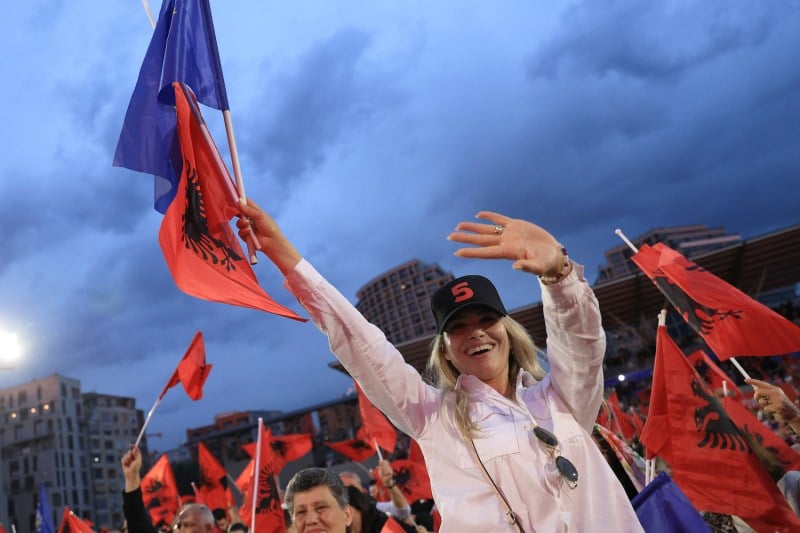
Join the Conversation
Commenting on this and other recent articles is just one benefit of a Foreign Policy subscription.
Already a subscriber?
.
Subscribe
Subscribe
View Comments
Join the Conversation
Join the conversation on this and other recent Foreign Policy articles when you subscribe now.
Subscribe
Subscribe
Not your account?
View Comments
Join the Conversation
Please follow our comment guidelines, stay on topic, and be civil, courteous, and respectful of others’ beliefs.
Change your username |
Log out
Change your username:
CANCEL
Confirm your username to get started.
The default username below has been generated using the first name and last initial on your FP subscriber account. Usernames may be updated at any time and must not contain inappropriate or offensive language.